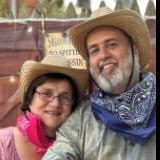“Rejoice, young man, while you are young, and let your heart be glad in the days of your youth. Follow the ways of your heart and go where your eyes lead you; but know that the true God will bring you into judgment for all these things.” (Ecclesiastes 11:9)
That verse doesn’t split joy from responsibility. It allows movement while quietly installing control. The heart is permitted to feel. The eyes are allowed to look. But neither is allowed to run without restraint. The awareness that Jehovah will bring matters into judgment does not shut those faculties down—it governs them while life is unfolding.
Think about stabilizers on large ships. They aren’t decorations and they aren’t emergency devices. They are systems—active, responsive, always working beneath the surface. Motors adjust. Sensors read conditions. The ship continues forward, but those systems decide how far it leans and how it responds. Without them, movement becomes drift. With them, movement stays purposeful.
That is what the second half of Ecclesiastes 11:9 does. Judgment is not a threat waiting at the end of the voyage. It is a stabilizer operating during the voyage, shaping where the heart goes and what the eyes remain fixed on.
Jesus then adds, “Continue being merciful, just as your Father is merciful.” (Luke 6:36)
That tells us the nature of Jehovah’s judgment. He does not act harshly or impulsively. He sustains life even when He is ignored. Jesus explains that Jehovah “makes his sun rise on both the wicked and the good and makes it rain on both the righteous and the unrighteous.” (Matthew 5:45) Food still grows. Seasons still turn. Mercy keeps operating. Not because wrongdoing is acceptable, but because Jehovah allows space.
That same balance appears in how Jehovah handled the situation involving Moses’ Cushite wife. The wrong speech came from Miriam and Aaron. Jehovah corrected Miriam. There were consequences. Yet He did not destroy her. The discipline was limited, and restoration followed (Numbers 12:1, 9–15). Judgment remained real, but mercy governed how far it went.
Jehovah carried that mercy even further through the ransom. “For God loved the world so much that he gave his only-begotten Son, so that everyone exercising faith in him might not be destroyed but have everlasting life.” (John 3:16) No one is excluded by their past alone. Jehovah “does not desire anyone to be destroyed but desires all to attain to repentance.” (2 Peter 3:9) Accountability exists, but opportunity remains open.
That is why the counsel, “Make sure of all things; hold fast to what is fine,” applies for an entire lifetime, not just youth (1 Thessalonians 5:21). We don’t rely solely on what we learned years ago. We keep consulting Jehovah. We pray. We read His Word. We research. We test again. The stabilizers stay engaged for the whole journey.
If something cannot be confirmed as good, we discard it. We don’t need to experience everything to know it does not belong onboard. And when something proves fine, we do not treat it lightly—we hold fast to it. That becomes ballast.
Put it all together and it isn’t tidy. Joy moves. Hearts feel. Eyes notice. Judgment stabilizes. Mercy governs. The ransom remains available. Discernment keeps adjusting. And none of this happens by accident. This is what Jehovah has actually been building in us—the ability to remain upright while imperfect, to keep moving forward without capsizing.
Not perfection yet.
But stability now.
